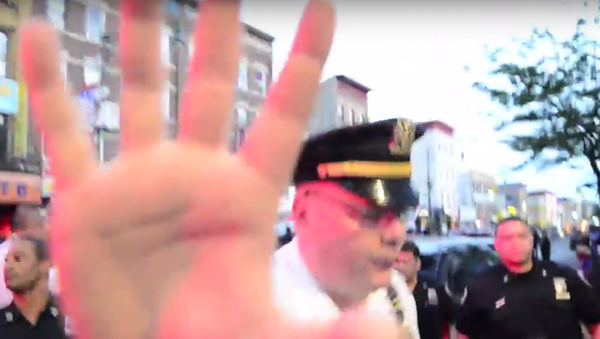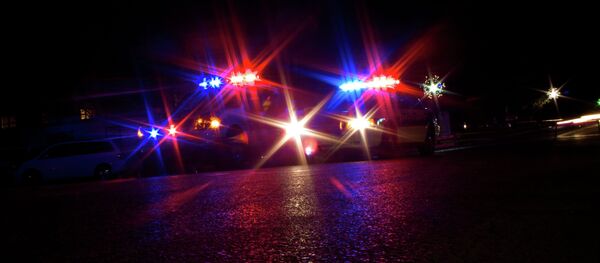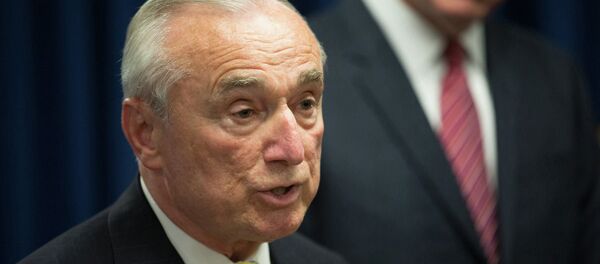The video captured a chaotic scene with several officers and members of the public, though it is unclear what was happening at the time.
“Get that down, out of my face, it’s illegal to film me,” the Lieutenant from NYPD’s 72nd precinct lies.
“No it’s not!” The man filming quickly snaps back.
Recording police is protected under the US Constitution’s First Amendment, as long as the person behind the camera is not interfering with an investigation.
We repeat: it is 100% not illegal to film the police.
In August 2014, the NYPD actually sent a memo to all of their officers reminding them that it is, in fact, illegal to interfere with persons who are filming them.
“Members of the public are legally allowed to record police interactions,” the memo stated. “Intentional interference such as blocking or obstructing cameras or ordering the person to cease constitutes censorship and also violates the First Amendment.”
Perhaps this lieutenant missed the memo.
Nationwide, meanwhile, it seems that police are upset about proactive citizens filming police encounters in hopes to provide accountability should things go awry.
On Wednesday, reporters from the Washington Post were present at a private meeting with over 100 of the nation’s top law enforcement officers and politicians. A major topic of discussion? What police call “The YouTube effect.”
Crime rates have been on the rise, and many in attendance were quick to blame officers’ sinking morale and fear of becoming the next star of an embarrassing viral video.
“We have allowed our police department to get fetal and it is having a direct consequence,” Chicago Mayor Rahm Emanuel told US Attorney General Loretta Lynch, the Post reported. “They have pulled back from the ability to interdict … they don’t want to be a news story themselves, they don’t want their career ended early, and it’s having an impact.”
New York City Police Commissioner William Bratton called it the “YouTube effect,” and stated that ever since the death of Eric Garner at police hands caused global outrage, the NYPD’s morale has been at an extreme low.
“Marchers in New York, marchers in my city were chanting, ‘What do we want? Dead cops! When do we want them? now!’ he said. “Well, they got them, two dead cops in December. The legacy of those two officers’ deaths have slowed down the momentum of what was started before it reached tidal wave proportions — really throwing the scales of justice out of balance.”
There is no indication whatsoever that spikes in violence are tied to less aggressive policing, but that did not stop top cops from claiming that it is a result of their perceived victimization in the media after they beat or kill someone unjustly.
FBI Director James Comey called our present time the “YouTube Era,” while questioning whether there was any other relationship between cities that have seen spikes in crime this year.
“Has policing changed in the YouTube era? I don’t like the term ‘post-Ferguson,’ because I actually believe the ‘YouTube era’ captures it better,” Comey pondered.




